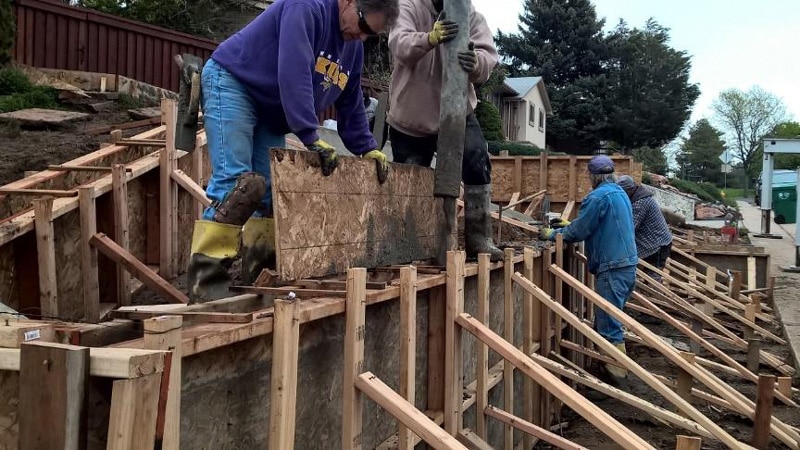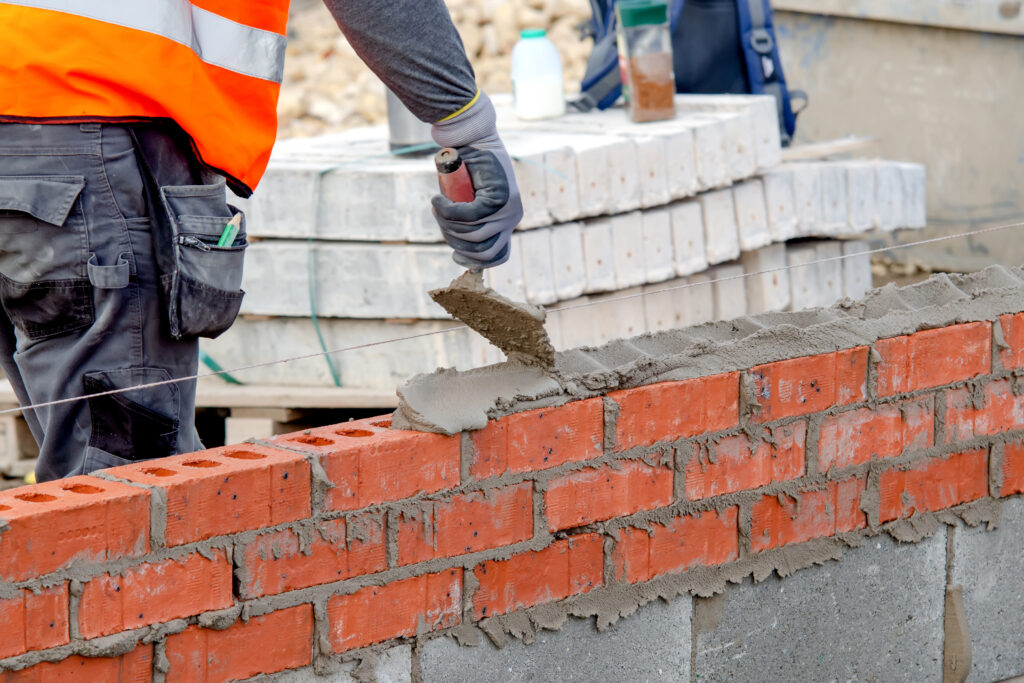Concrete Admixtures for Residential Driveways
Appropriate concrete admixtures offer numerous benefits for residential driveways when added to concrete either at the ready-mix plant or on the job site. Admixtures work by changing certain properties in the concrete based on the application’s unique needs.
This brief guide will cover some different types of difficulties encountered with concrete and how certain admixtures can benefit concrete used for residential driveways.
Compressive strength
For most concrete installations, compressive strength is a key metric for gauging performance, indicating the concrete’s ability to resist compression under heavy loads. Different types of admixtures can increase compressive strength, including water reducers and accelerators.
Permeability
Some residential driveways will have low permeability requirements, in which case admixtures can help reduce permeability. Integral or topically-applied waterproofers as well as certain supplemental cementitious materials can help lower permeability to prevent water and chemical ingress.
Shrinkage
Certain installations may require shrinkage-reducing admixtures. Concrete naturally shrinks slightly during curing, and excess evaporation during initial curing can exacerbate this tendency. To reduce drying shrinkage, curing compounds and evaporation reduction methods can be employed. Shrinkage-reducing admixtures help reduce the amount of natural shrinkage that occurs due to the curing process.
Cracking
Some admixtures may help reduce the risk of cracking in concrete. There are many different reasons that concrete can crack, and the strategy to mitigate cracking will depend on the type(s) of cracking that are most anticipated for a given environment. Air entrainers help reduce cracking due to freeze/thaw, shrinkage reducers help reduce shrinkage cracking, and curing aids help reduce the fine cracking that can appear due to surface drying during initial curing. These are just a few examples of how specific admixtures can help reduce certain types of cracking.
Delaminating
Delamination is another issue that can compromise the structural integrity of residential driveways. Delamination occurs when unbonded layers develop between the surface and the slab body of the concrete. Delamination can result from bleed water or air voids that form weak areas beneath the concrete’s surface, leading to surface defects. To prevent this, it’s best to use a chemical admixture that helps control bleed rates and reduce water demand in concrete mixtures.
Freeze/Thaw
Concrete admixtures can also boost durability by protecting against freeze/thaw cycles. Often, residential driveways will benefit from air entraining admixtures to provide this protection. Air-entrained concrete contains air cells that allow water to expand while freezing without reducing the concrete’s durability. The industry specification ASTM C 260 covers the specific requirements for air-entraining admixtures. Effective air entraining admixtures help ensure air bubbles in concrete mixtures are of the appropriate volume, size, and distribution.
Abrasion resistance
Abrasion may result from the gradual mechanical degradation of concrete, which could include impact, friction, and overloading. Mineral admixtures such as microsilica or silica fume can help improve abrasion resistance along with strength. In addition, superplasticizers are proven to further increase abrasion resistance for concrete by as much as 25%. Dry shake-on hardeners have also been used to increase abrasion resistance, but application difficulty and low cost-effectiveness make their use less attractive. Certain specialty admixtures, including carbon nanotube-enriched admixtures like EdenCrete® are also being used effectively to increase abrasion resistance.
Corrosion Inhibition
Residential driveways with embedded steel reinforcing bars may benefit from corrosion inhibitors to protect against corrosion if they’ll see exposure to corrosive marine environments or salts used for deicing. In these instances, certain admixtures can help prevent corrosion from chloride.
Choose the Right Admixtures for Your Installation
Depending on the specific environment and the requirements of the residential driveway installation, there are many types of admixtures you can use to change different properties of the concrete being placed. Whether you need to enhance the concrete’s strength, abrasion resistance, freeze/thaw resistance, or other factors, you may use one or more chemical, mineral, or other types of admixtures to complete the job.

 Mortar Admixture for Residential Masonry - Admixtures used in block, brick and stone residential construction increases strength and durability while reducing cracking, shrinkage and permeability. Learn more.
Mortar Admixture for Residential Masonry - Admixtures used in block, brick and stone residential construction increases strength and durability while reducing cracking, shrinkage and permeability. Learn more.  Concrete Additive for Residential Patio - Concrete Admixtures increase strength & durability, reduce cracking, shrinking, delamination & efflorescence in poured concrete surfaces, build a better patio.
Concrete Additive for Residential Patio - Concrete Admixtures increase strength & durability, reduce cracking, shrinking, delamination & efflorescence in poured concrete surfaces, build a better patio.
 Cement Admixtures for Swimming Pools - Admixtures used with concrete &…
Cement Admixtures for Swimming Pools - Admixtures used with concrete &…  Edencrete for Swimming Pool Construction - Swimming pool contractors find Edencrete…
Edencrete for Swimming Pool Construction - Swimming pool contractors find Edencrete…  Cement Admixture for Residential Patio - Concrete admixtures are used to…
Cement Admixture for Residential Patio - Concrete admixtures are used to…  Shotcrete Admixtures for Swimming Pool Construction - EdenCrete® lowers pump pressure, improves…
Shotcrete Admixtures for Swimming Pool Construction - EdenCrete® lowers pump pressure, improves…  Shotcrete Additives for Swimming Pools - Shotcrete admixtures are used create…
Shotcrete Additives for Swimming Pools - Shotcrete admixtures are used create…  Cement Additives for Swimming Pools - Concrete / shotcrete admixtures are…
Cement Additives for Swimming Pools - Concrete / shotcrete admixtures are…  Shotcrete Additive for Swimming Pools - Shooting a pool shell: Shotcrete…
Shotcrete Additive for Swimming Pools - Shooting a pool shell: Shotcrete…  Concrete Admixture for Residential Patio - Increase compressive & flexural strength,…
Concrete Admixture for Residential Patio - Increase compressive & flexural strength,…  Mortar Additive for Residential Masonry - Mortar admixtures increase durability &…
Mortar Additive for Residential Masonry - Mortar admixtures increase durability &…
Contact Us
Social Media
Related Videos
Popular Articles

